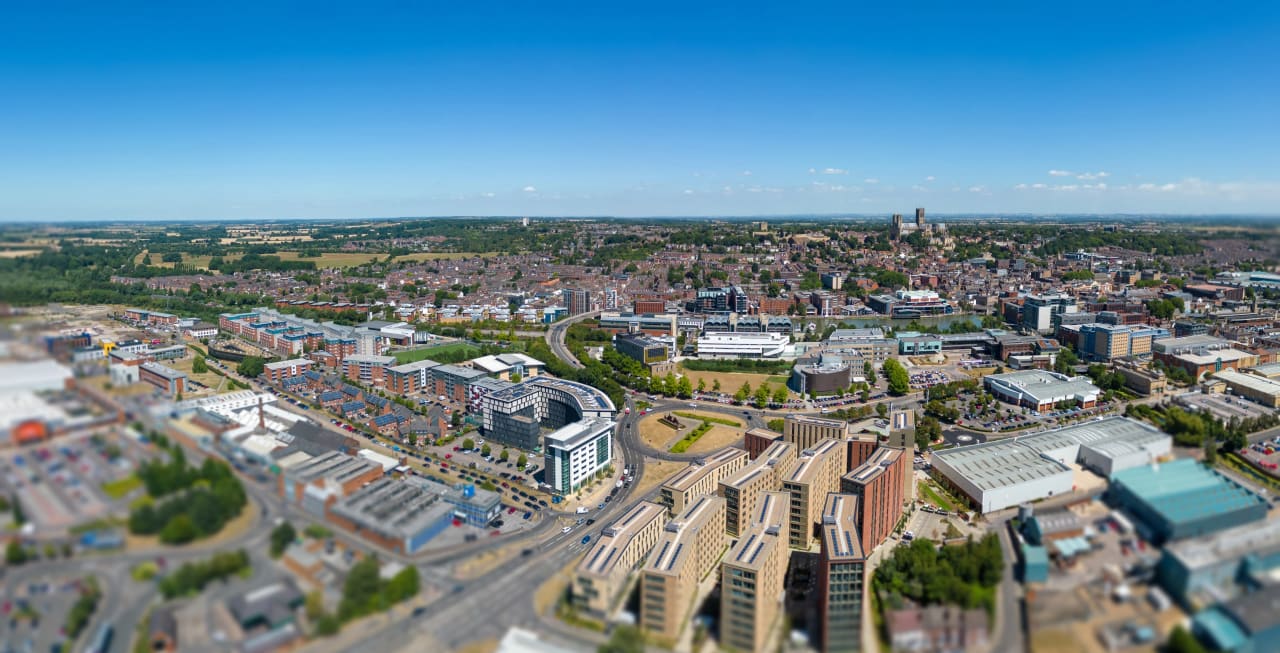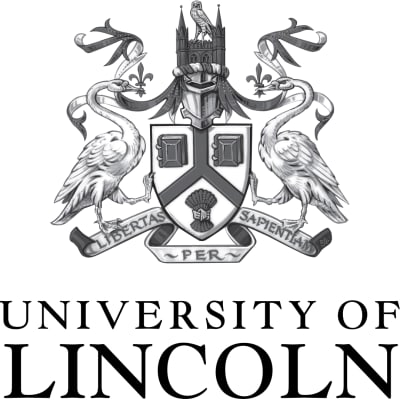
MA History
University of Lincoln

Key Information
Campus location
Lincoln, United Kingdom
Languages
English
Study format
On-Campus
Duration
1 - 3 Year
Pace
Full time, Part time
Tuition fees
Request Info
Application deadline
Request Info
Earliest start date
Request Info
Discover Lincoln Wherever You Are in the World
Our webinars, subject masterclasses, question and answer sessions, and student panel talks are a great way to discover what it is like to live and study at the University of Lincoln.
Introduction
This rigorous Master’s programme is designed to develop students’ specialist knowledge of history alongside advanced research skills that are transferable to a variety of career paths, including PhD study.
Students can specialise in the history of gender and sexuality, media history, and contemporary British history, or pursue a general programme of study instead. Through cumulative research, students can develop the relevant skills and an enhanced capacity for informed citizenship, critical thinking, and simple awareness.
The city of Lincoln is rich in history and heritage making it the perfect setting in which to conduct historical research. Students can benefit from the historical resources available in the city, including an extensive archive of materials at the on-campus Media Archive of Central England (MACE), the International Bomber Command Centre, and The Wren Library at Lincoln Cathedral which houses several thousand early modern books.
Students in the course are expected to undertake an in-depth independent research project and produce a detailed dissertation.
Prioritising Face-to-Face Teaching
At the University of Lincoln, we strive to ensure our students’ experience is engaging, supportive, and academically challenging. Throughout the Coronavirus pandemic, we have adapted to Government guidance to keep our students, staff, and community safe. All remaining Covid-19 legal restrictions in England were lifted in February 2022 under the Government’s Plan for Living with Covid-19, and we have embraced a safe return to in-person teaching on campus. Where appropriate, face-to-face teaching is enhanced by the use of digital tools and technology and may be complemented by online opportunities where these support learning outcomes.
We are fully prepared to adapt our plans if changes in Government guidance make this necessary, and we will endeavour to keep current and prospective students informed.
"This information was correct at the time of publishing (July 2023)"
Admissions
Curriculum
- Dissertation (MA History) (Core)
- Historical Research (Core)
- The Dissertation Map: Dissertation Preparation (Core)
- The Public Historian (Core)
- Break Ranks! Antimilitarism, Pacifism and Resistance to War (Option)†
- Early Modern Manhood (Option)†
- Every day Britain: MACE (The Media Archive for Central England) and the Historian (Option)†
- Literature, Politics and Identity in Inter-War Europe (Option)†
- Photographing Empire (Option)†
- Politics and Political Culture in Tudor and Stuart Britain, 1485-1714 (Option)†
- Sex and Science in the Western World, 1800 to the present (Option)†
- The British Image of the United States (1896-Present day) (Option)†
- The Making of Contemporary Britain: From Sexual Liberation to Deindustrialisation, 1970-1990 (Option)†
- The Study of Political History in Britain (Option)†
- Themes and Issues in Media History (Option)†
- Themes and Issues in the History of Gender and Sexuality (Option)†
- Themes in Contemporary British History (Option)†
- Themes in Global History (Option)†
How You Study
The taught modules are delivered through a series of seminars. Students are supported in researching and writing their dissertations with a series of tutorial meetings with their supervisor.
Students in this course should expect to receive three to four hours of contact time per week. The postgraduate level study involves a significant proportion of independent study, exploring the material covered in seminars. As a general guide, for every hour spent in class, students are expected to spend two to three hours in an independent study.
Core modules
- Historical Research (12 weeks)
- The Dissertation Map (six weeks)
- The Public Historian (six weeks)
Students also have a choice of one 12-week optional core module in Semester 1 and one 12-week optional module in Semester 2.
Optional core modules can include:
- Themes in Contemporary British History
- Themes in Global History
- Themes and Issues in Media History
- Themes and Issues in the History of Gender and Sexuality
Optional modules can include:
- Every day Britain: MACE (The Media Archive For Central England) and the Historian
- Politics and Political Culture in Tudor and Stuart Britain, 1500-1700
- Early Modern Manhood
- Sex and Science in the Western World, 1800-present
- The Making of Contemporary Britain: From Sexual Liberation to Deindustrialisation 1970-1990
- Gender and Material Culture in Modern Britain
- Photographing Empire
- The History of the Book: Media and Print Culture in Early Modern Europe
- Break Ranks! Antimilitarism, Pacifism and Resistance to War
- Literature, Politics, and Identity in Interwar Europe
- Print Culture and the Book in the Nineteenth Century
How You Are Assessed
A variety of forms of assessment are used during this programme, including research projects, essays, public engagement projects, presentations, book reviews, portfolios, and the 15,000-20,000 word dissertation.
The University of Lincoln's policy on assessment feedback aims to ensure that academics will return in-course assessments to students promptly - usually within 15 working days of the submission date (unless stated differently above).
Gallery
Program Outcome
How You Study
The taught modules are delivered through a series of seminars which typically take place on a Wednesday. Students are expected to undertake an in-depth independent research project and produce a detailed dissertation. You will be supported in researching and writing your dissertation with a series of tutorial meetings with your supervisor.
Students on this course should expect to receive three to four hours of contact time per week. Postgraduate-level study involves a significant proportion of independent study, exploring the material covered in seminars. As a general guide, for every hour spent in class, students are expected to spend two to three hours in independent study.
Scholarships and Funding
Several scholarship options are available. Please check the university website for more information.
Program Tuition Fee
Career Opportunities
The skills and knowledge acquired from studying history are valued by many professions. This programme aims to develop the advanced knowledge and expert research skills valued in both the public and private sectors.
As effective writers and communicators, historians can go on to careers in journalism, communications, and marketing. Research and organisation skills produce outstanding librarians, information managers, and researchers, while many historian graduates also go on to complete additional study to become lawyers, diplomats, and public officials.